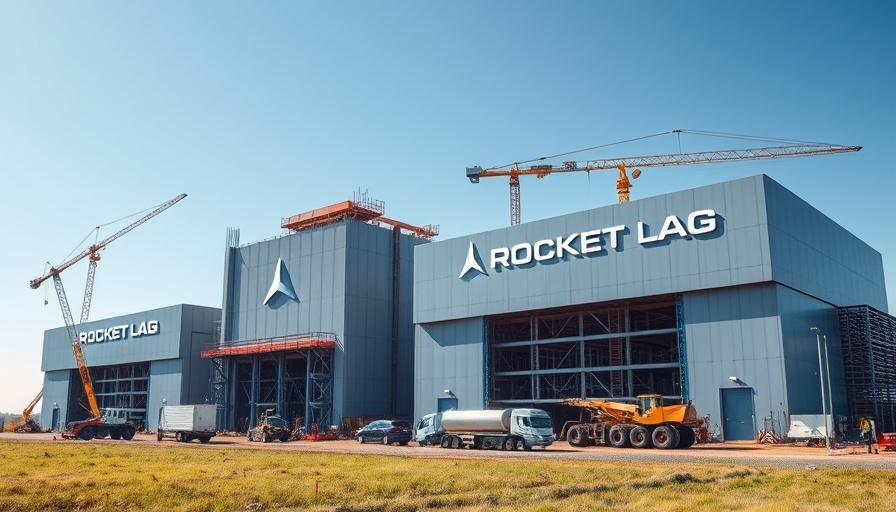
Rocket Lab Navigates Challenges Ahead of Neutron's Launch
As the space industry continues to evolve, Rocket Lab finds itself at a crucial junction as it prepares to launch its new Neutron rocket from Wallops Island, Virginia. The company is racing against time, having requested approval to transport oversized Neutron rocket structures through shallow waters—an operation requiring meticulous planning and adaptation.
Understanding MARS: The Advantages and Limitations
The Mid-Atlantic Regional Spaceport (MARS) offers advantages over more congested sites in Florida and elsewhere, providing a lower-traffic environment that could facilitate a higher launch cadence. However, MARS is hampered by limited maritime infrastructure and reliance on favorable tides to access the Sloop Gut channel. Rocket Lab's request for federal clearance to dredge a permanent channel stems from the need for reliable access for significant infrastructure deliveries, particularly as Neutron's launch approaches this September.
Rocket Lab’s Investments in Infrastructure
Poured millions into MARS, Rocket Lab’s investment in this spaceport is aimed at ensuring it can handle regular Neutron launches. The urgency to establish dependable logistics becomes ever more apparent, as the company acknowledges that the current capabilities for delivery via road, used for the smaller Electron rocket, will not suffice for Neutron's larger components.
What’s Next for Rocket Lab?
With a formidable checklist ahead—mating rocket stages, conducting a wet dress rehearsal, and obtaining a launch license from the Federal Aviation Administration—Rocket Lab aims to overcome the transportation hurdle swiftly. This will not only mark a significant milestone for the company but also establish MARS as a viable launch location in the competitive space race.
Exploring Future Opportunities in Space Travel
The challenges presented by the logistical aspects of launching a new rocket like Neutron draw attention to the broader obstacles facing emerging players in the aerospace industry. As space technology accumulates momentum, demand for innovative solutions to infrastructure problems will only intensify. Rocket Lab’s strategy at MARS reflects the necessity for both adaptability and vision in the rapidly evolving landscape of space exploration.
Conclusion: The Importance of Local Spaceports
The story of Rocket Lab at MARS encapsulates the pressures faced by private space companies today. Getting Neutron to the launchpad is more than just a logistical concern; it represents the collective ambition of fostering a competitive edge in a space exploration market eager for growth and innovation. As stakeholders watch closely, the successes and setbacks of this venture could influence future technological advancements and opportunities within the industry.
 Add Row
Add Row  Add
Add 



Write A Comment